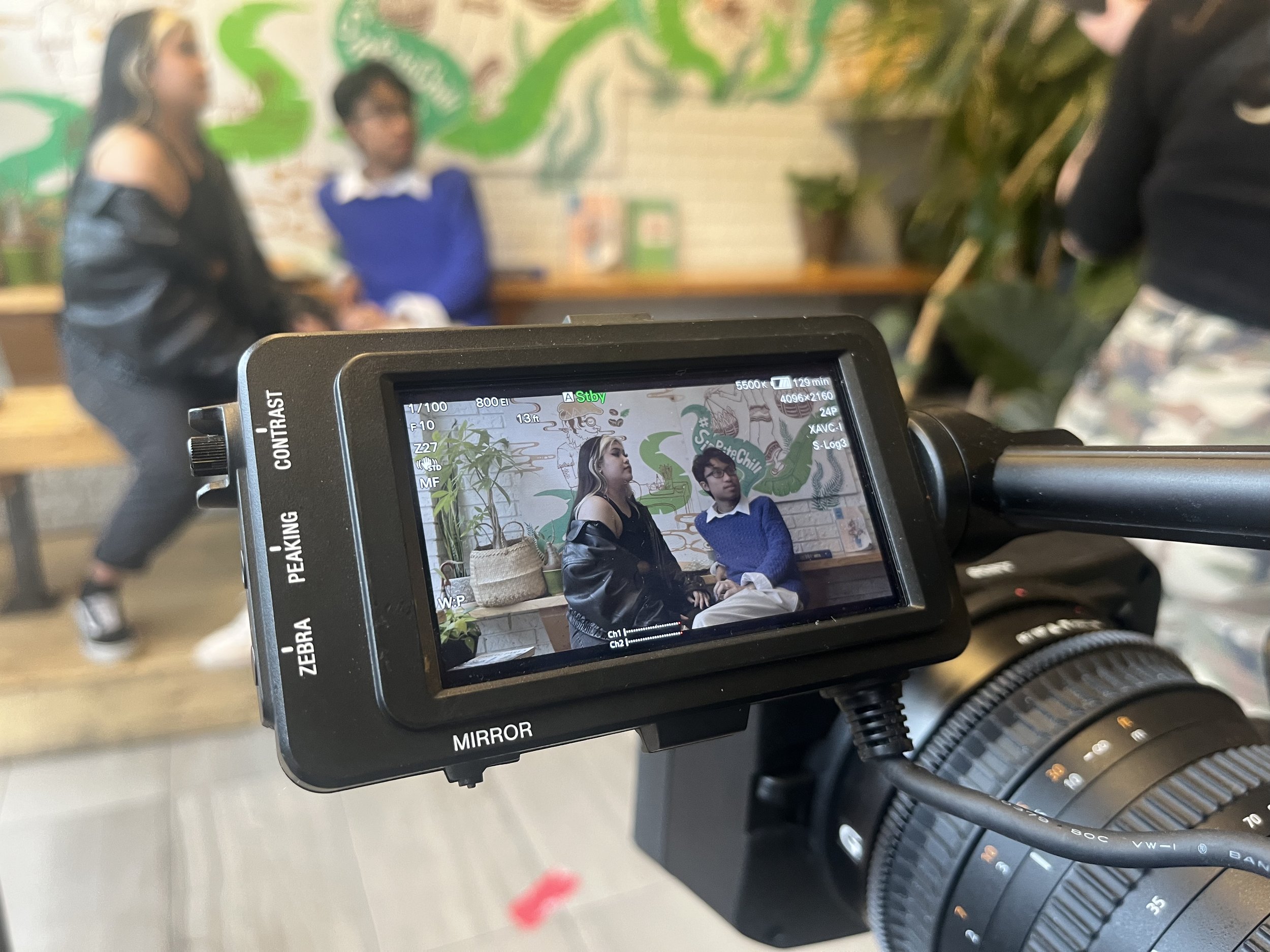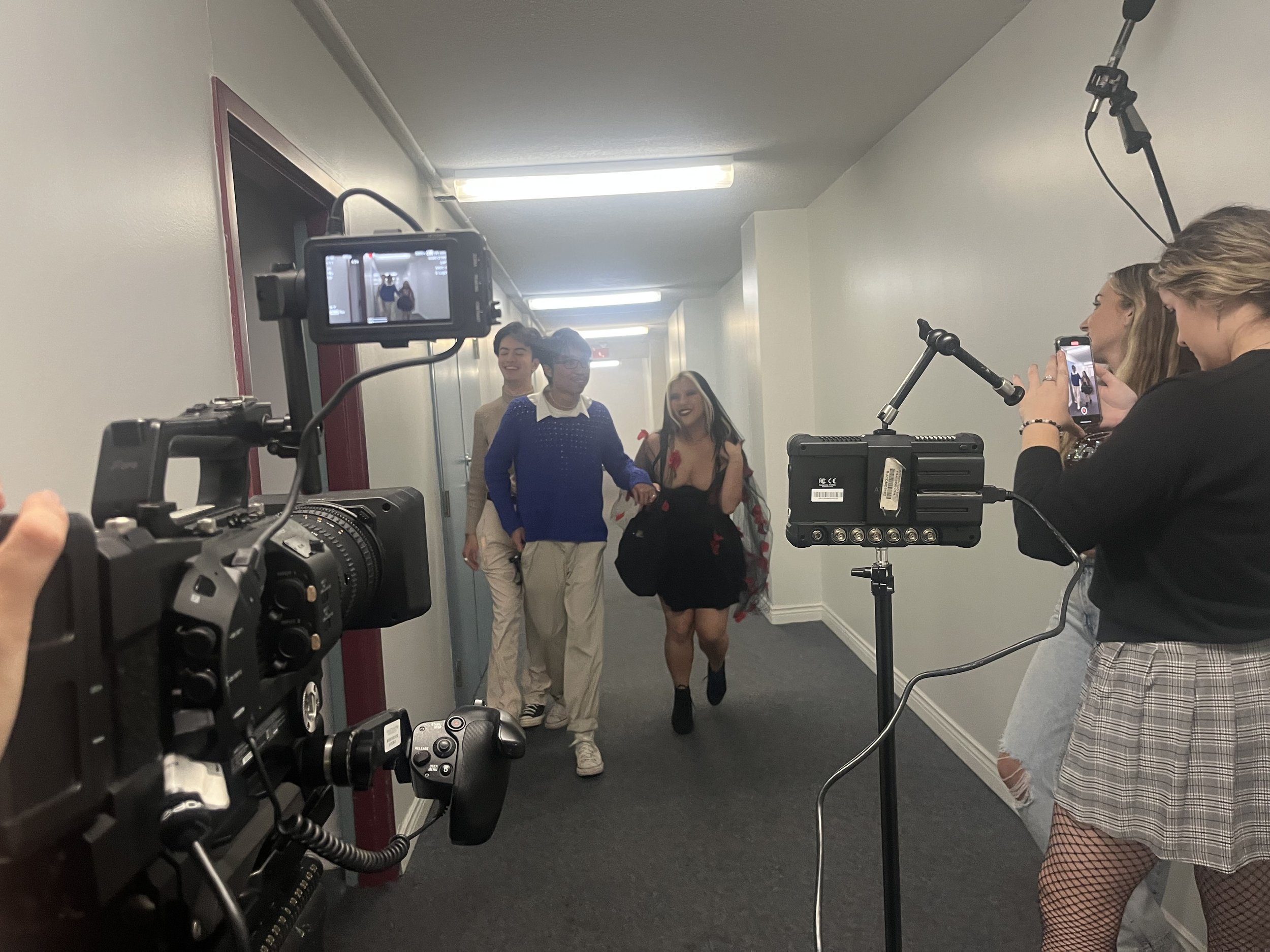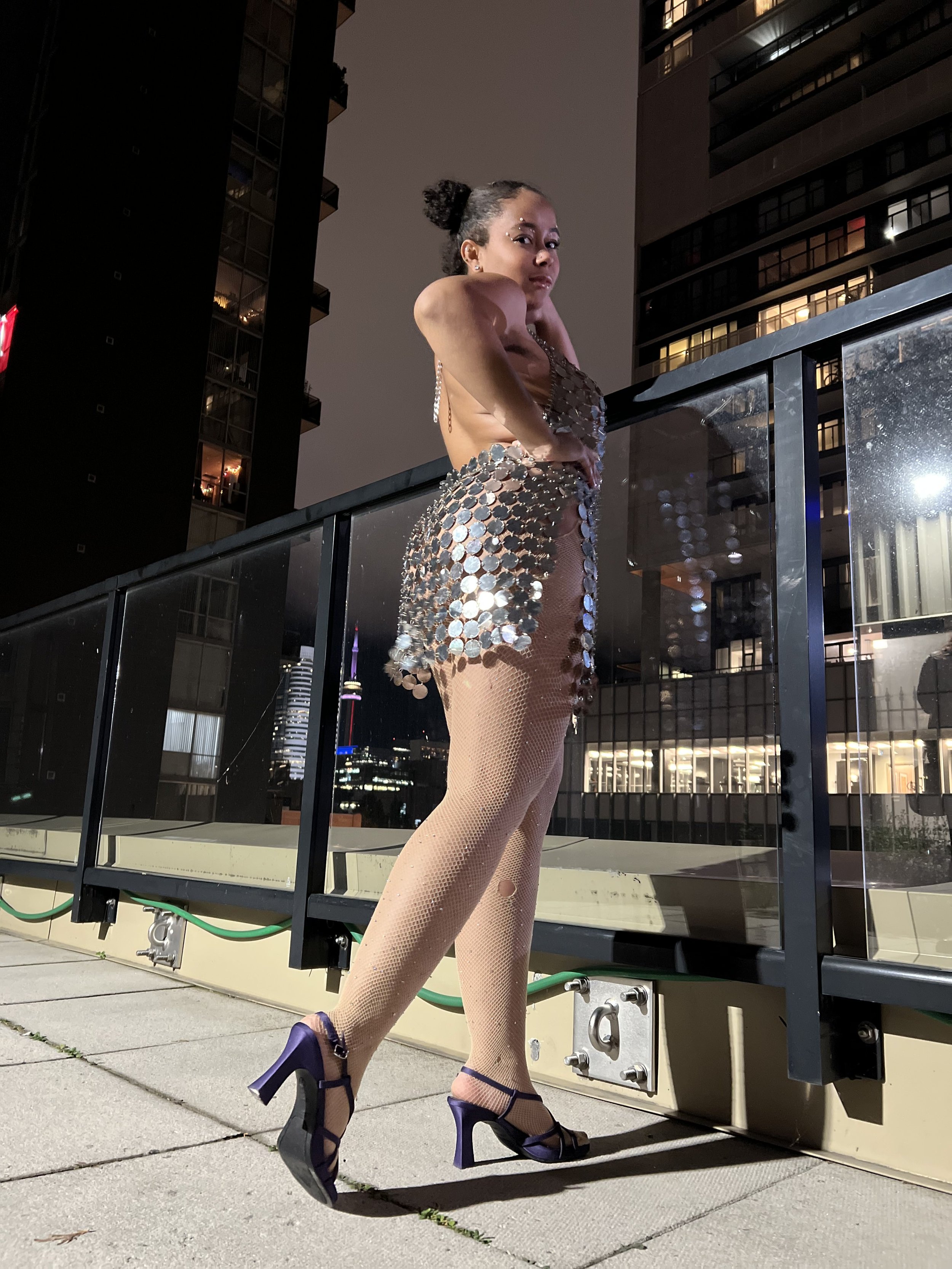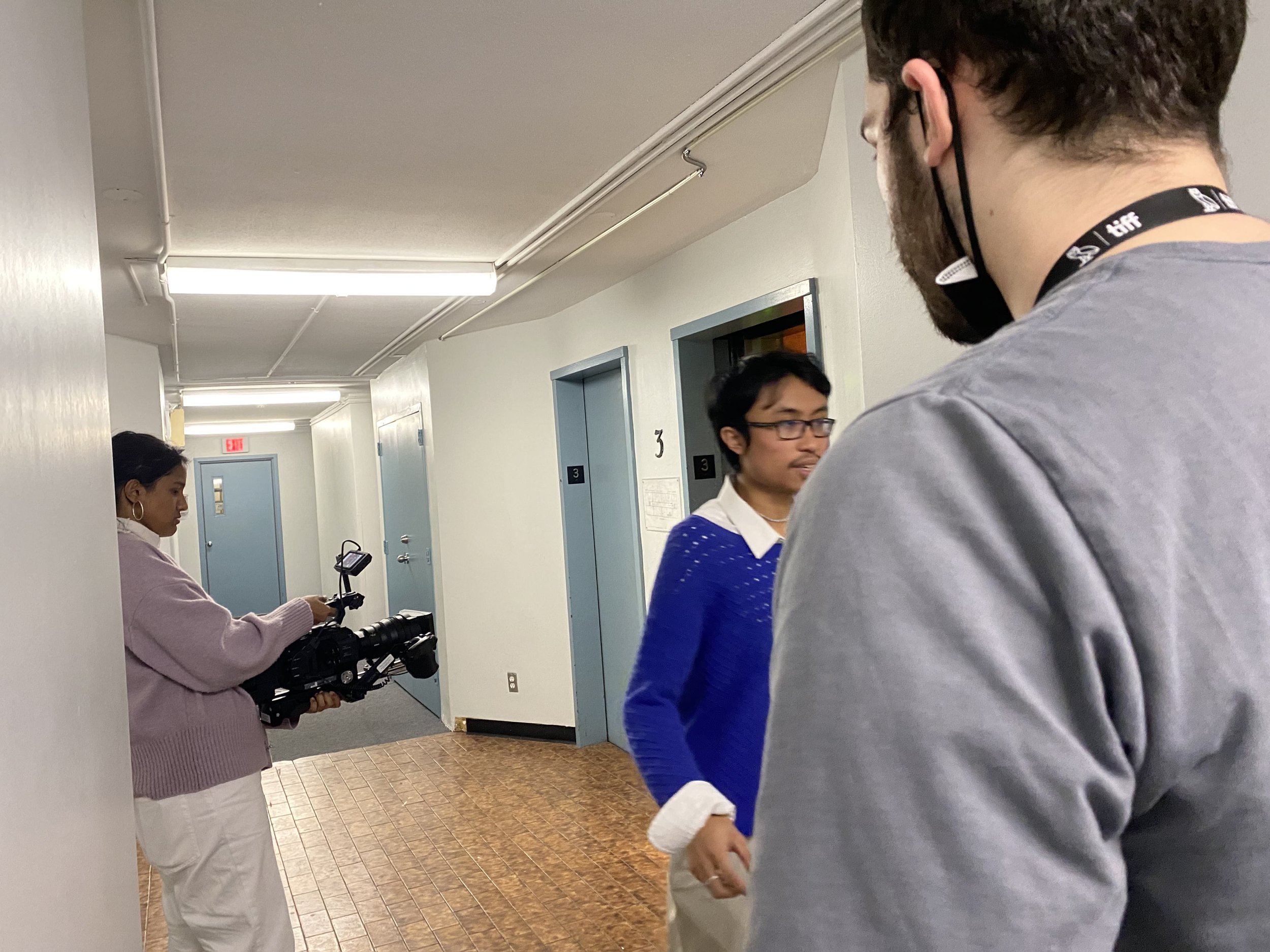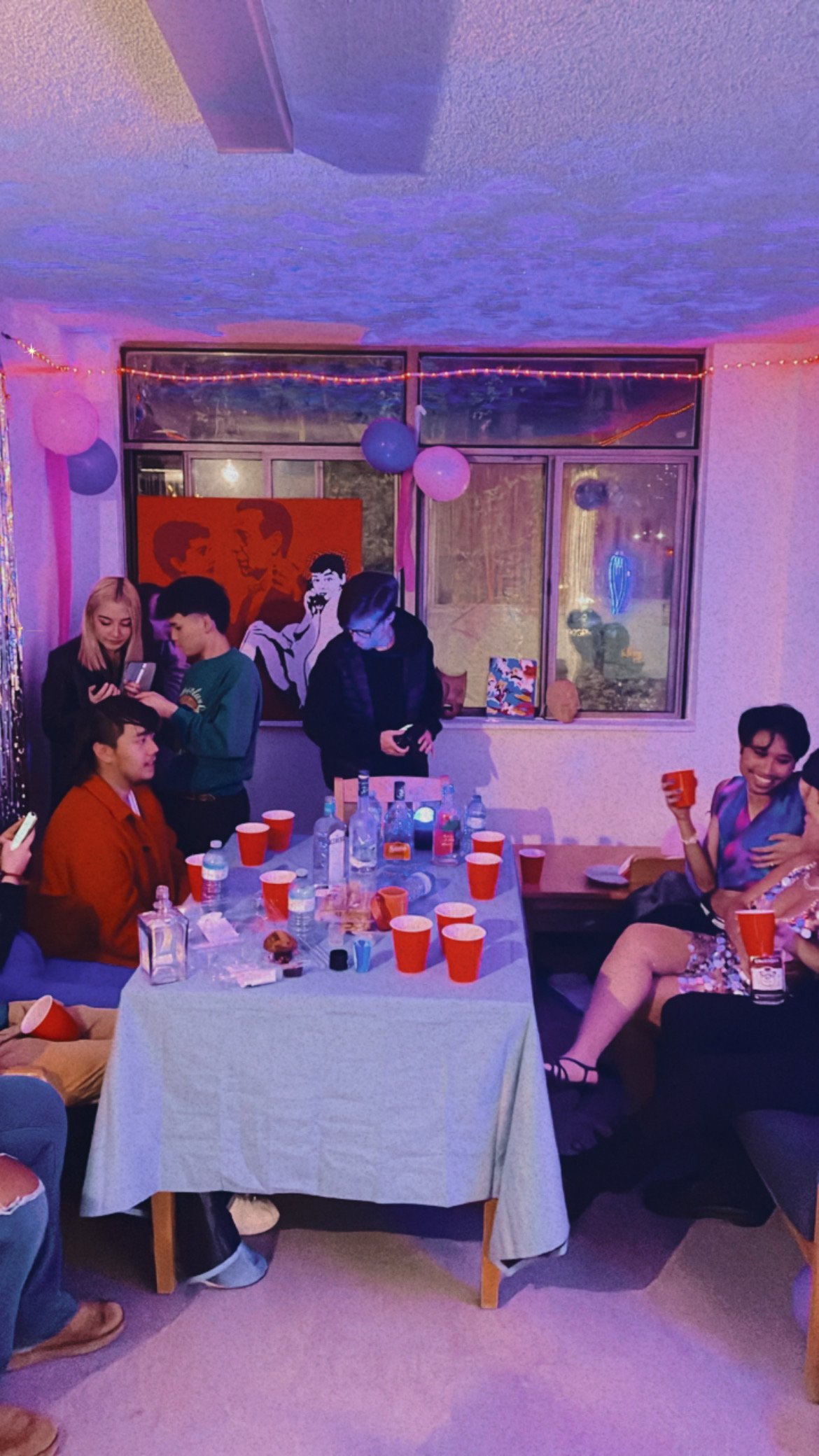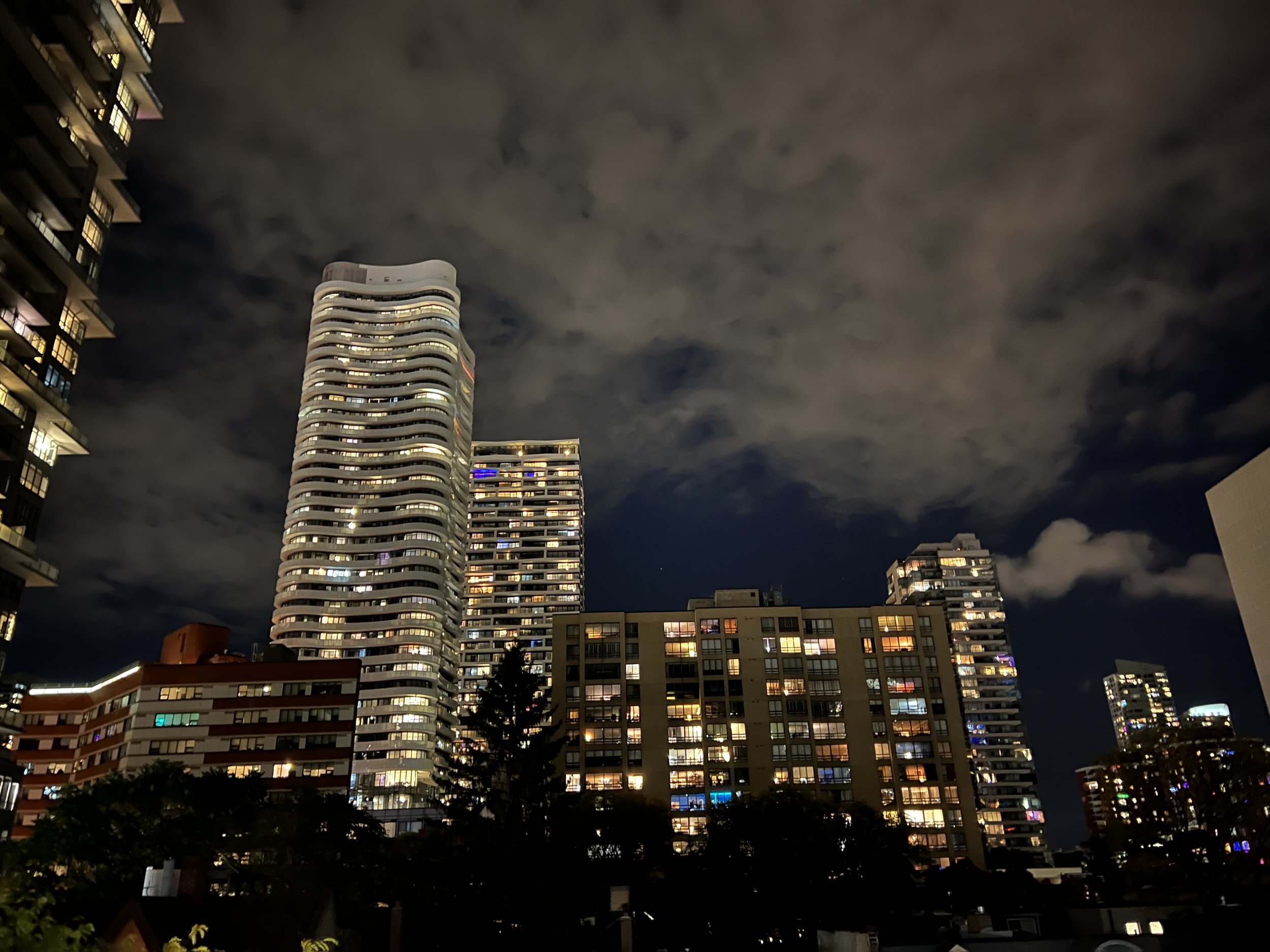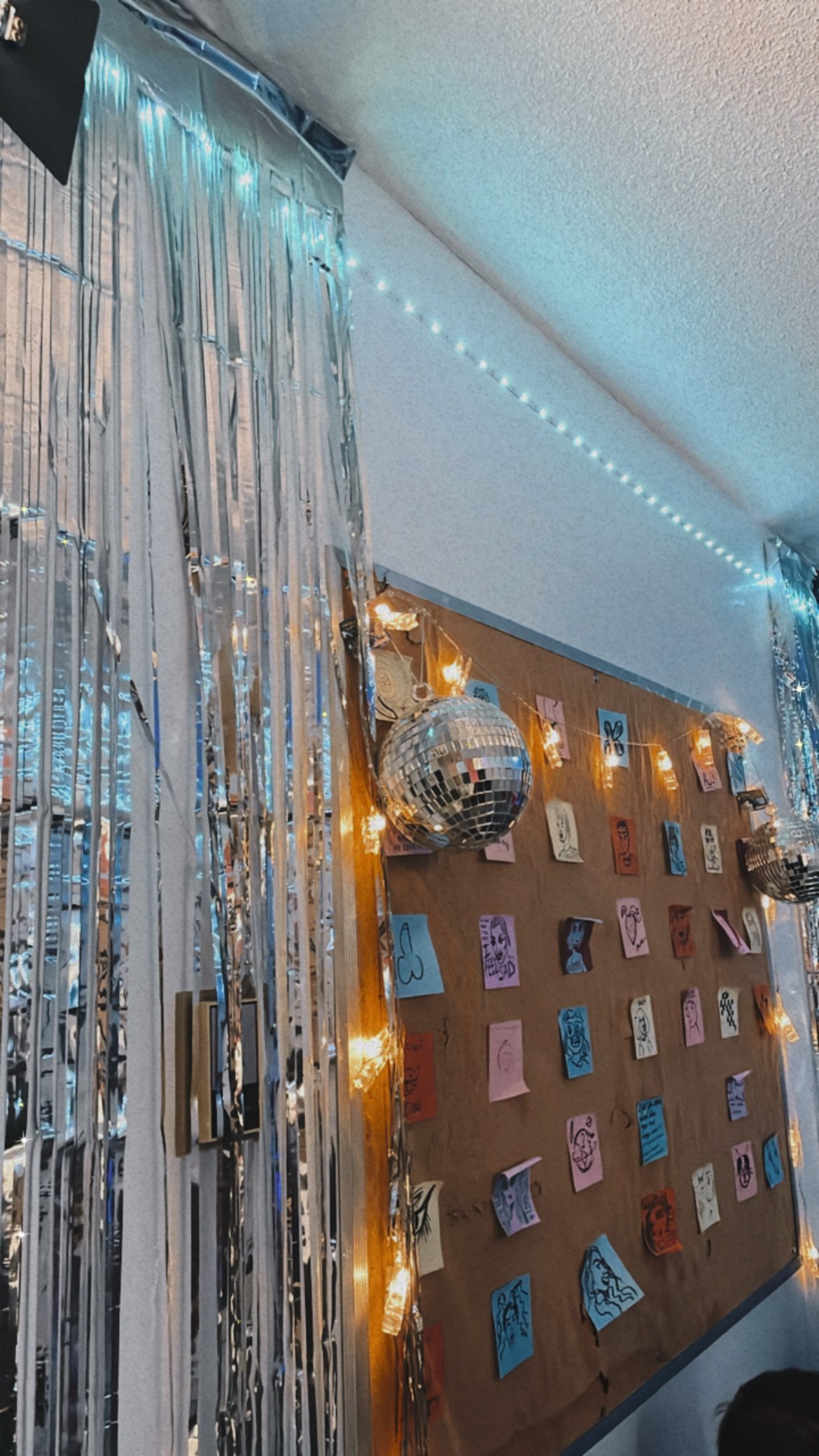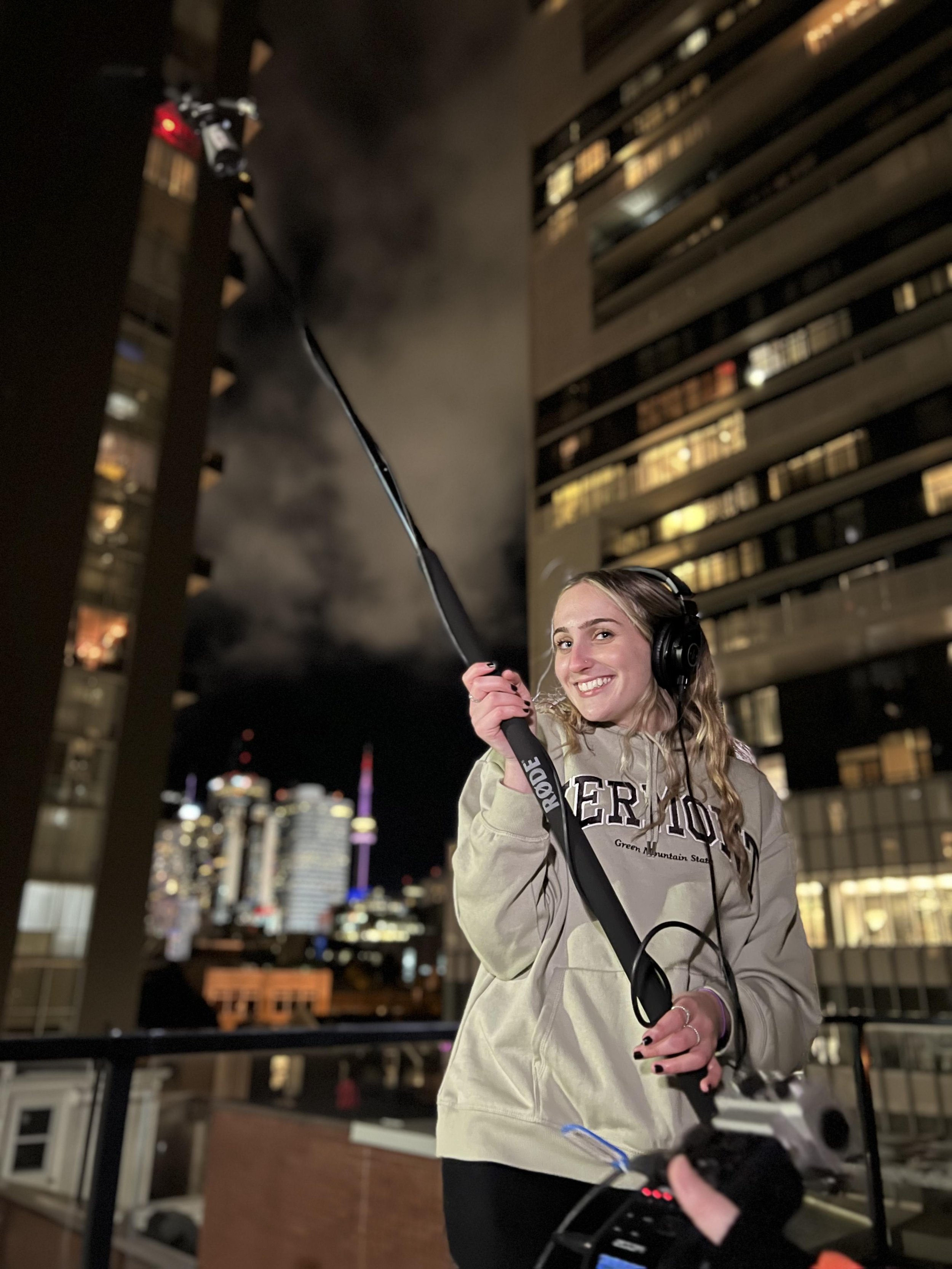Read CanCulture's Q&A with creator and director Heyishi Zhang and season 2 star Robyn Matuto
By: Mariana Schuetze
(L to R) Vicky To stars as “Skye”, Jenna Phoa stars as “Savannah Lin” and Robyn Matuto stars as “Jenn” in director Heyishi Zhang’s GAY MEAN GIRLS Season 2, a KindaTV release on YouTube. (Courtesy of KindaTV)
Gay Mean Girls is nothing like anything I've seen before. It started as a short film then turned into a successful webseries, with it's second season premiering this year. It's a coming-of-age queer dramedy filled with joy, laughs, anger, disappointment and everything that comes with being a queer teenager in high school.
The series was created by Toronto Metropolitan University alum Heyishi Zhang, and season two stars Robyn Matuto, also a TMU alum. The series is shot in the GTA and is written and produced by a community of queer women of colour.
The second season of the show follows student journalist Savannah Lin who becomes embroiled in the complicated dynamics of a queer POC "safe space" in Toronto. Following the story of young queer women and non-binary folks, this season challenges what family means to young, marginalized communities and how it can change as you learn to be true to yourself.
CanCulture's film editor Mariana Schuetze had the opportunity to sit down with Zhang and Matuto and talk about their work and thoughts on the show.
Why Gay Mean Girls? Where does that title come from?
Zhang: I think that 'gay' is because the characters are gay. They're mean because I think that all the characters have like a very ambiguous moral compass. And I think ultimately, the story is more of a critique of the structures that we live in. And it's an expression of how these kids act out as a result of the oppression that they face. And then the girls is because they are… I think the girls aspect is like, it's like a more playful spin to what these characters are experiencing.
And, of course, I would be remiss not to mention the film Mean Girls. I think for me, I remember watching it; there was like a very homoerotic quality to the relationships that all the women had with each other, especially because the men in that film were kind of used as pawns. But the women were the players of all of that. And so even though they were attracted to men, all of their attention was toward the women. And so I think I wanted to see a more explicitly queer version of these mean girls.
And how has the response been? I saw that you pre-screened at TIFF Next Wave (for season one, in 2019, and now for season two). How was that like?
Zhang: Oh, it's wonderful. I think screening the first season, it made a really big impact on me. And I think, because it was a live audience, to see how people reacted in real-time, it was pretty interesting. And so I ended up kind of writing the second season more like a feature than something episodic, for that reason. Because I had always dreamed of, or I had always envisioned, that the audience would receive it in a theatre for the second season, as opposed to the first, where it was going to be received online.
I think to me, one of the facets of the show is that it's like, if you get it, you get it, if you don't, you don't. And the people who get it really go hard. And I really appreciate that. And then everyone else who doesn't get it, I think there's like something for everyone, or I try to put something for everyone in there whether it's the one-liners or the certain tension between the characters and stuff like that. I find that the audience online often latch onto those things. It's fun to see how everyone reacts to it. But I think it's really rewarding to see some of the audience understand the structural critiques that are being made about society, as well.
Jenna Phoa stars as “Savannah Lin” in director Heyishi Zhang’s GAY MEAN GIRLS Season 2, a KindaTV release on YouTube. (Courtesy of KindaTV)
Were you there, Robyn, for the season two screening? How was that?
Matuto: Yeah, I was. It was really… it was just really fun. And it was just really great to just have people come up to me later and just be like, “I experienced something like that, too.” I think every person of colour that went to this screening was like, "I totally get what I saw on screen.I know what it feels like to have social justice language being weaponized against you." Or like, "I've met a Savannah or I've met a Jen before…"
Robyn, can you tell us a little bit about, your character Jen, and how you became involved with the production?
Matuto: I remember in the audition process, I went into it, playing like a very archetypal mean girl, and it was just really interesting because after, Heyishi and I would have conversations, and talk about, you know, that she doesn't set out to be mean.
I think the thing with Jen is like, she's never gonna see herself as the antagonist of the story. She is the hero of her own story. And that was just a really interesting and juicy thing to play. Because at the end of the day, she does, I believe, have a good heart. And she really is trying to balance loyalty to herself, and her friendship with Savannah, as well as her reputation. And that was just a lot of fun to play with. And really, like sit down and think like, you know, I can't go into this playing a character that I want to judge, I have to go into this being like, "nope, this is her, whatever her truth is, it's her truth, even if someone in the story doesn't receive it that way."
And how was it creating these characters? And exploring this universe in season two? How does it feel to write and direct something that you've created?
Zhang: I'm really happy with the season, compared especially to the first season, I think because this season is an expression of what the inside of my head feels like. Especially the sixth episode that does this justice. In the sense that everything is a little exaggerated and wrong. But, it's meant to be menacing and dangerous but it's not presented as such like the visuals are very, very, fun and colourful.
But to answer your question, in terms of what it's like to make it, honestly, it was really hard. I think for me, the show is a way for me to organize my memories. And my memories are not that pleasant. So I had to dig in.
I think that I had to really try to understand not only my environment, and the social rules of my environment, and to articulate clearly what those words are in the making of the store and its world. But also, I have to seek to understand the people around me, and that included the people who have hurt me as well. And I think the nice thing about being able to make movies is that it's easier to empathize with people who have hurt you when you have narrative control. And so I think that was one of the more challenging processes of writing the show. And in terms of directing it and everything, I think, for me, I learned a lot about, like, how much prep goes into making, like into planning for set and how I can improve as a director.
And in talking about creating the show, how important was it for you, for both of you, or how did it feel to have women of colour leading this project in front of and behind the camera?
Matuto: I feel like it really made a world of a difference because I've been acting since I was a teenager. And most of the time when I'm on set, no one looks like me.No one talks like me. No one gets the same jokes about having immigrant parents as me. And on this, I really felt comfortable, just like existing. I feel like a lot of the time when you're on set, and you're a woman of colour, you're always gonna be at least 30 per cent on survival mode, even if you're on the safest set in the world, it's still gonna be a majority of white men. And that's just kind of like how the industry goes.
In this, I always felt comfortable, voicing out like, "hey, in my family, Jen would talk like this." Or if like, I saw something on set, I would be like, "Hey, I could actually bring something of Filipino culture to hang up." I totally felt comfortable doing that. It just really felt like an environment where I didn't have to necessarily be "on," so to speak, which is nice. And just being with a cast where I wasn't playing like the token Asian best friend because oftentimes when I'm out there, like that is the role I'm being submitted for and then, I'm the only one on set who has that experience, and I'm regurgitating lines that are made for the token Asian best friend, but in this case, like everyone is Asian. It really didn't feel like…an alienating experience.
Zhang: I think I remember that Jen was written to be East Asian in the script. And then, we had worked in aspects of Filipino culture into the character, like as a result of Robyn's casting.
But yes, in terms of having women of colour lead the story, I think all the people in the writing room are also women of colour. And I think that there's a certain understanding of "how have I seen the world structurally?" And understanding how to portray the characters and having the story play out in a realistic manner; in a way that you wouldn't get anywhere else. And I hope that the rest of the industry is able to catch up with what indie creators in the web series sphere are doing. Because it seems like this, it's oftentimes when these low-budget, indie web series or like spaces are the types of projects that the creators are able to take any kind of real risk. And it's where you see different stories being told. And so I hope that the Canadian TV world and the Canadian film world is able to see the kind of innovation that's taking place in the web series.
Jenna Phoa stars as “Savannah Lin” in director Heyishi Zhang’s GAY MEAN GIRLS Season 2, a KindaTV release on YouTube. (Coutesy of KindaTV)
In talking about the future and about hope, what do you hope audiences take from from Gay Mean Girls season two?
Zhang: I hope that they find the story funny and entertaining and that they can relate to it. That's really basic, but basically, it's kind of what Robyn was saying about like, "oh, like I've had these community experiences with all this corruption and everything." Because I think it's something that people don't really want to talk about because these spaces are very marginalized. And the problem is very complex. And so it's like, sometimes people don't know how to talk about it, or sometimes they're just cowards. And they don't want to risk being on the outs. But I hope that the show can be, like, a starting point to having these kinds of conversations. And in turn, I hope it rubs the right people the wrong way.
Matuto: I guess for me, I would just say that I really hope people go away from it rethinking the structures that they work within and the institutions that they work within.
I think the greatest response I had after was my friends and family coming up to me being like, "I've never seen someone talk about these organizations and these grassroots communities like that." And it's like, well, yeah, like, 100 per cent, that happens, but I think people just don't want to talk about it because it is such a safe space for so many people. But at the end of the day, we are just replicating the same stuff that we're seeing in these institutions that we're trying to run away from.
And then just like—I know this is such a boring answer— but like empathy, too. And maybe that's because I played Jen. You know, she does a lot of wrong in this series, but she does a lot of what she thinks is right too. And I think at the end of the day, you just got to think about it like, putting yourself in those people's shoes doesn't mean they're right. Or maybe we should just think about it and what brought them to that place in their life.
Zhang: I think to add to that, it's like I hope people can recognize the cop that lives inside them and to be reckoned with that.
Jenna Phoa stars as “Savannah Lin” in director Heyishi Zhang’s GAY MEAN GIRLS Season 2, a KindaTV release on YouTube. (Courtesy KindaTV)
Zhang and Matuto are just getting started, and Gay Mean Girls shows just how incredible content can be when community members are able to tell their own stories, on their own terms. They say they hope everyone loves it – especially the series’ sixth episode, their personal favourite. And if they don't, Matuto hopes that at least viewers examine why they hate it.
Gay Mean Girls’ season one is already available on their YouTube channel and the second season is set to premier on Feb. 24 at 3:30 pm EST, and every following Friday. Fans can also follow them on their social media, @gaymeangirls on every social media platform.







